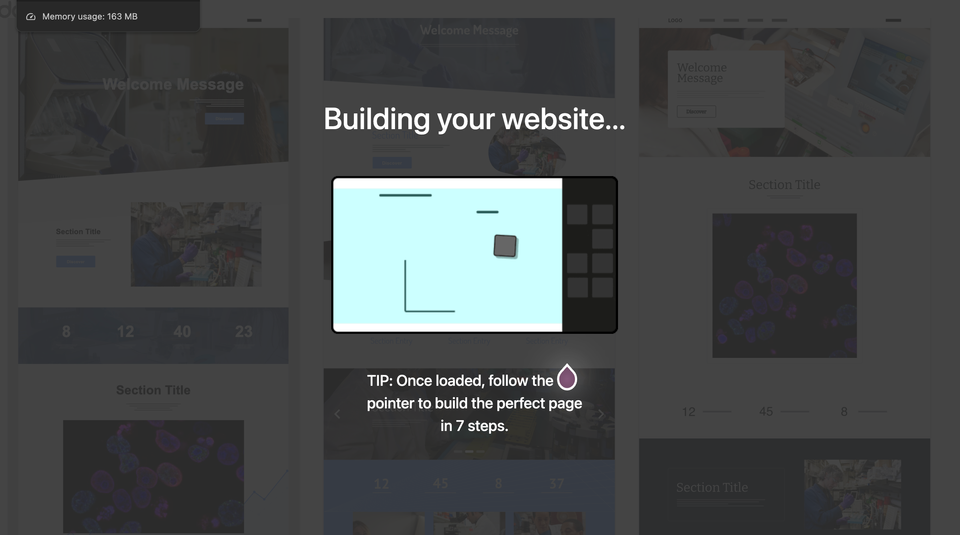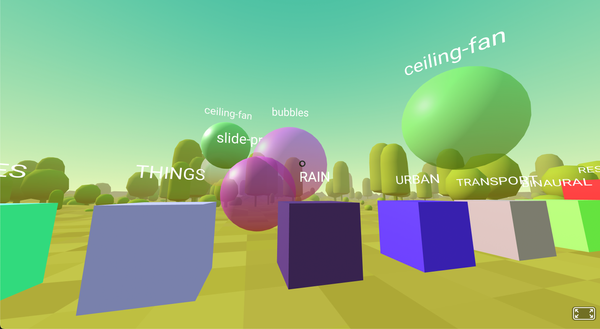From ERP to CMS: How Odoo Shines as a Content Management System
Odoo is More Than Just an ERP: A Comprehensive Review of Its CMS Features
Table of Content
When people think of Odoo, the first thing that comes to mind is ERP (Enterprise Resource Planning). And for good reason — Odoo is renowned for helping businesses manage everything from inventory and sales to accounting and project management.
My experience with Odoo goes beyond the occasional work for our regular clients. It all started with Odoo 6, when I was tasked with customizing, editing, and building custom Odoo modules.
These projects primarily focused on healthcare solutions, such as hospital management systems, inventory tracking tools, and integrations with other platforms.
I’ve always appreciated the work that the community edition team has put into the system. Although I’m not particularly fond of the new dashboard and app management interface, I still acknowledge the impressive effort behind it.
Odoo remains a powerful platform, and working with it has been an engaging and rewarding experience.
For me, Odoo has always been about building and maintaining custom add-ons for our regular clients. The CMS? Never even considered it. Until recently.
A client needed a website with custom pages for payments, courses, and more. Enter Odoo CMS.
Let’s just say: I was impressed.
While the ERP dashboard in the community edition has left me unimpressed with its recent lack of flexibility, the CMS features were a breath of fresh air.
Responsive design, an intuitive editor, customizable templates — all wrapped in a neat package. Here’s what stood out.
1. A Wizard to Guide Your Journey
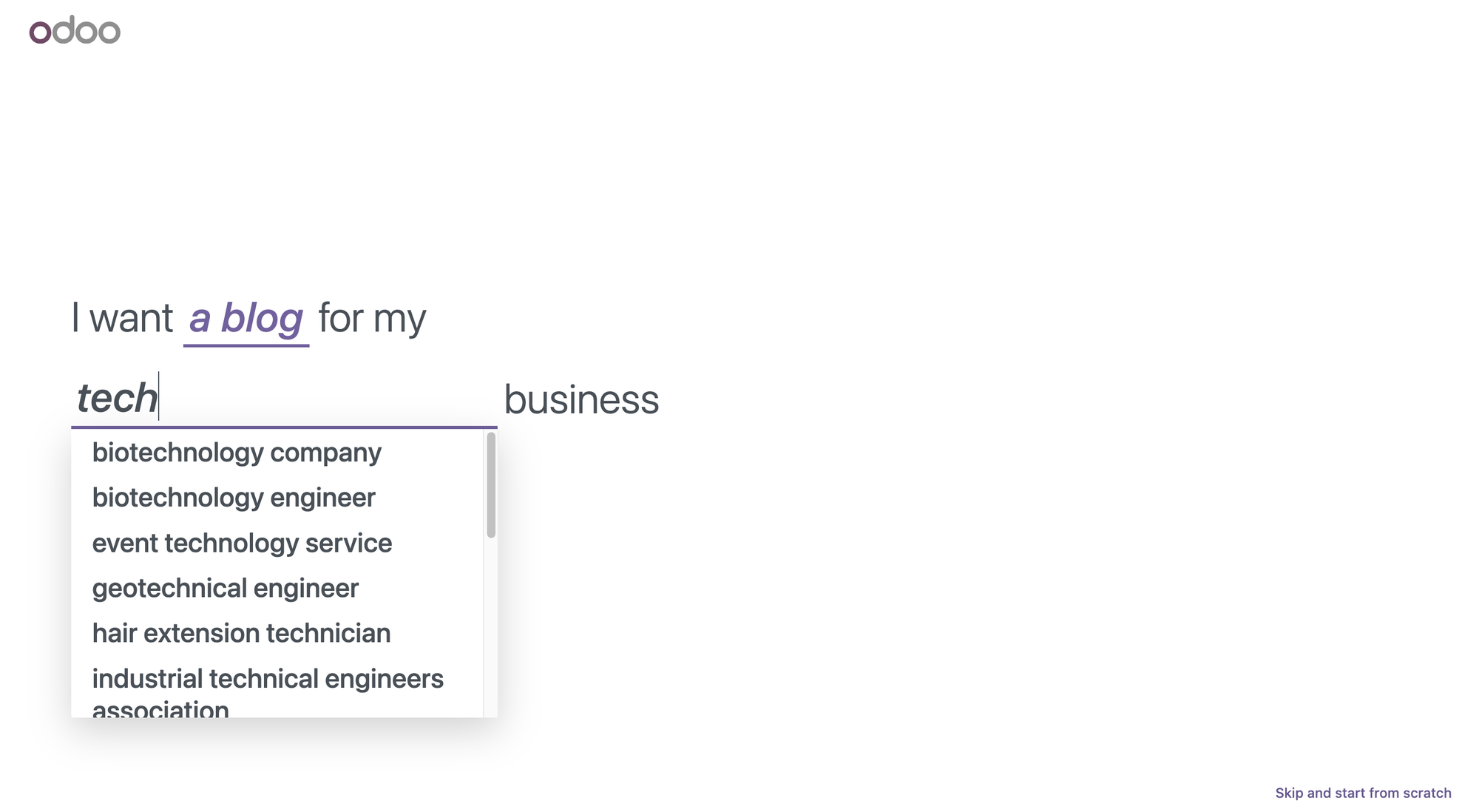
Odoo CMS greets you with a helpful wizard that asks what you’re looking to achieve.
Want a blog? A product page? An events calendar? Just answer a few quick questions, and the wizard will recommend designs and systems suited for your needs. No guesswork. No frustration.
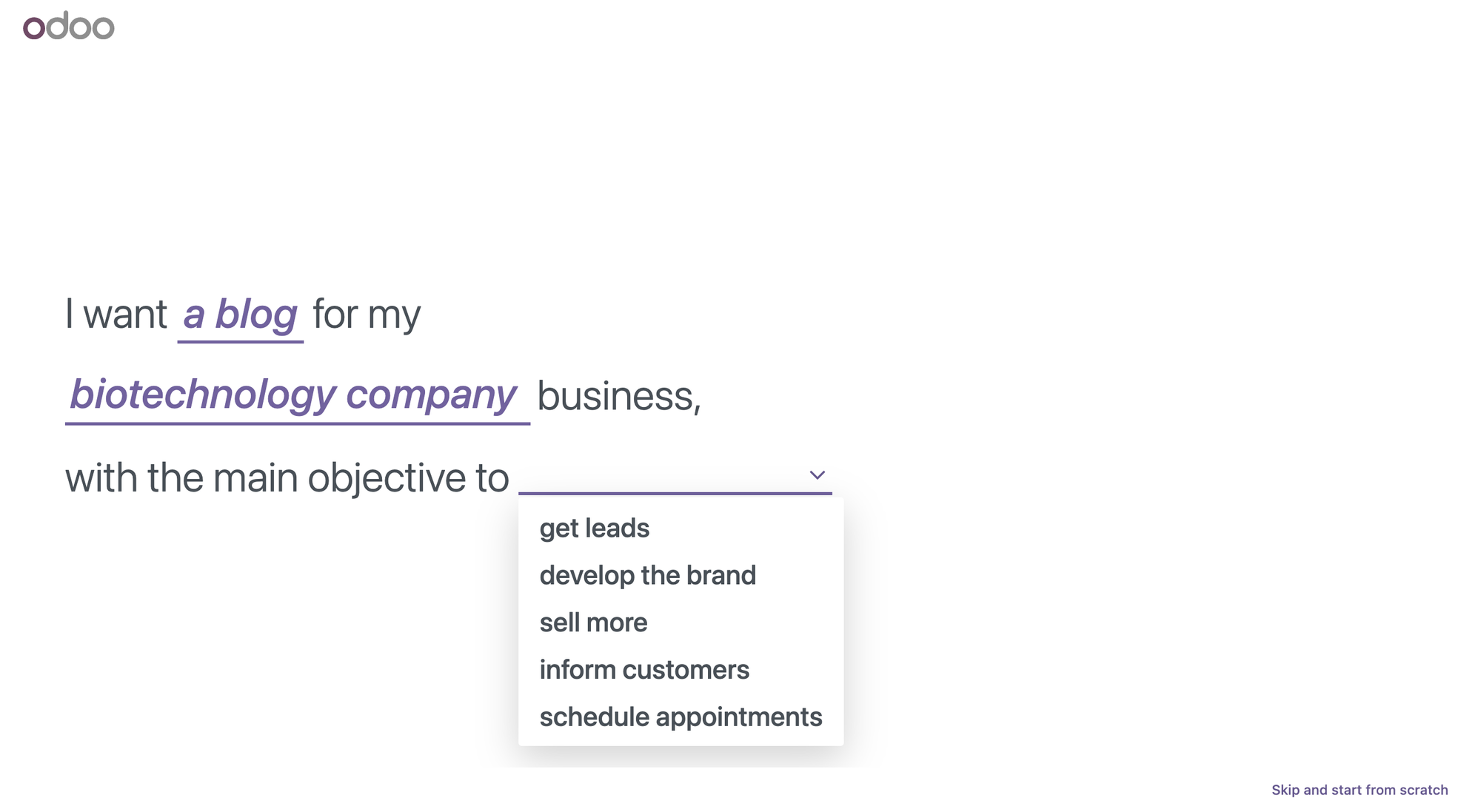
I really like the Wizard, it comes with dozens of options and goals that put you directly in business.
2. Content Editing Made Simple with Sections
You know those CMS platforms that make you click through endless menus to tweak your page layout? Not here.
Odoo CMS uses a section-based editor that lets you drag, drop, and arrange content blocks with ease. Text, images, forms — everything is modular and customizable.
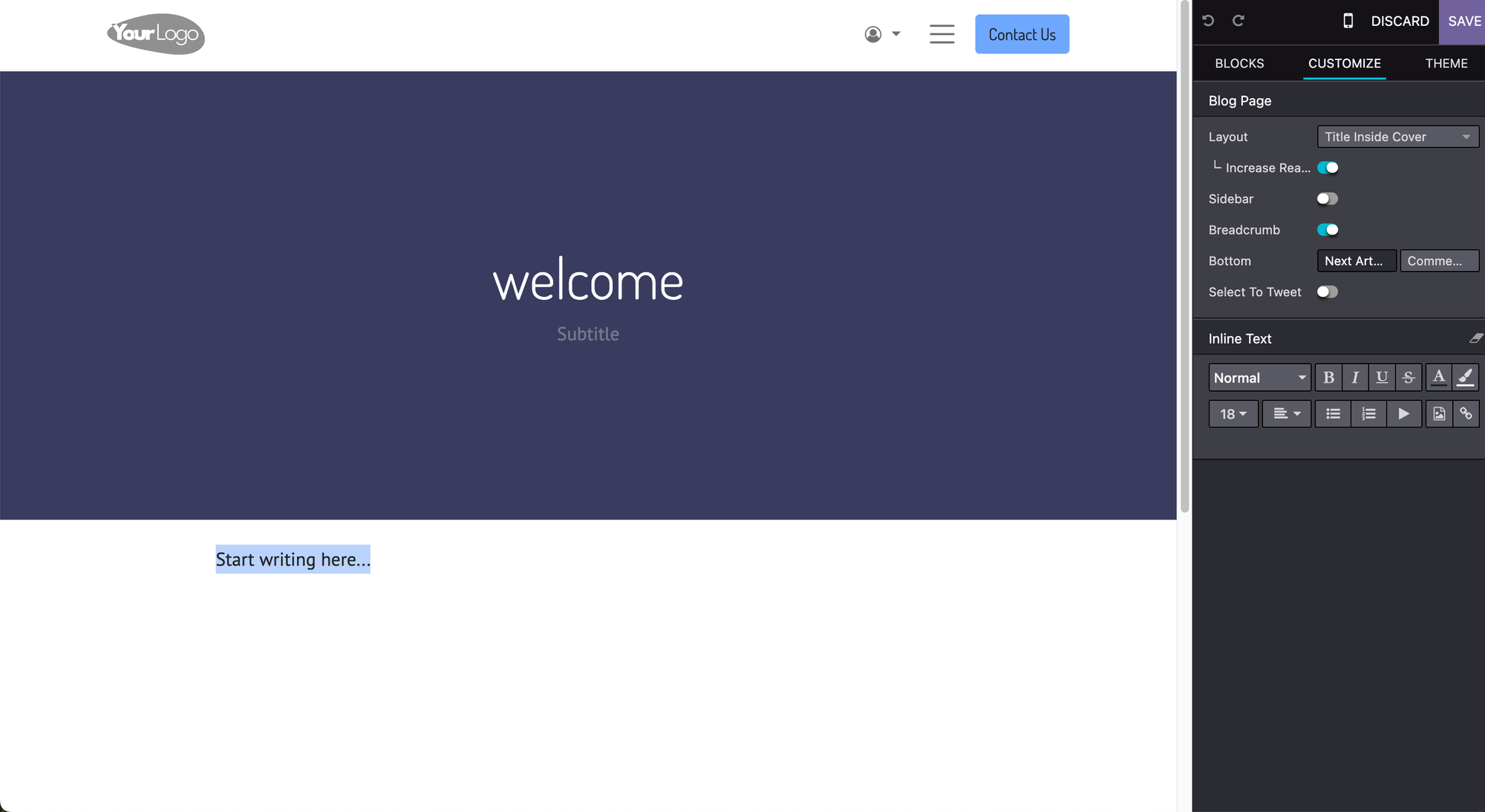
It is straightforward drag and drop that enables you to drop your web sections, and such. You can customize text blocks, choose to add other blocks, change layout and more.
Every element on your page can be customized. Colors, fonts, margins, layouts — if you can see it, you can tweak it.
For businesses that want complete control over their brand’s online presence, this flexibility is invaluable.
3- Choose the Goal and Features of your Site
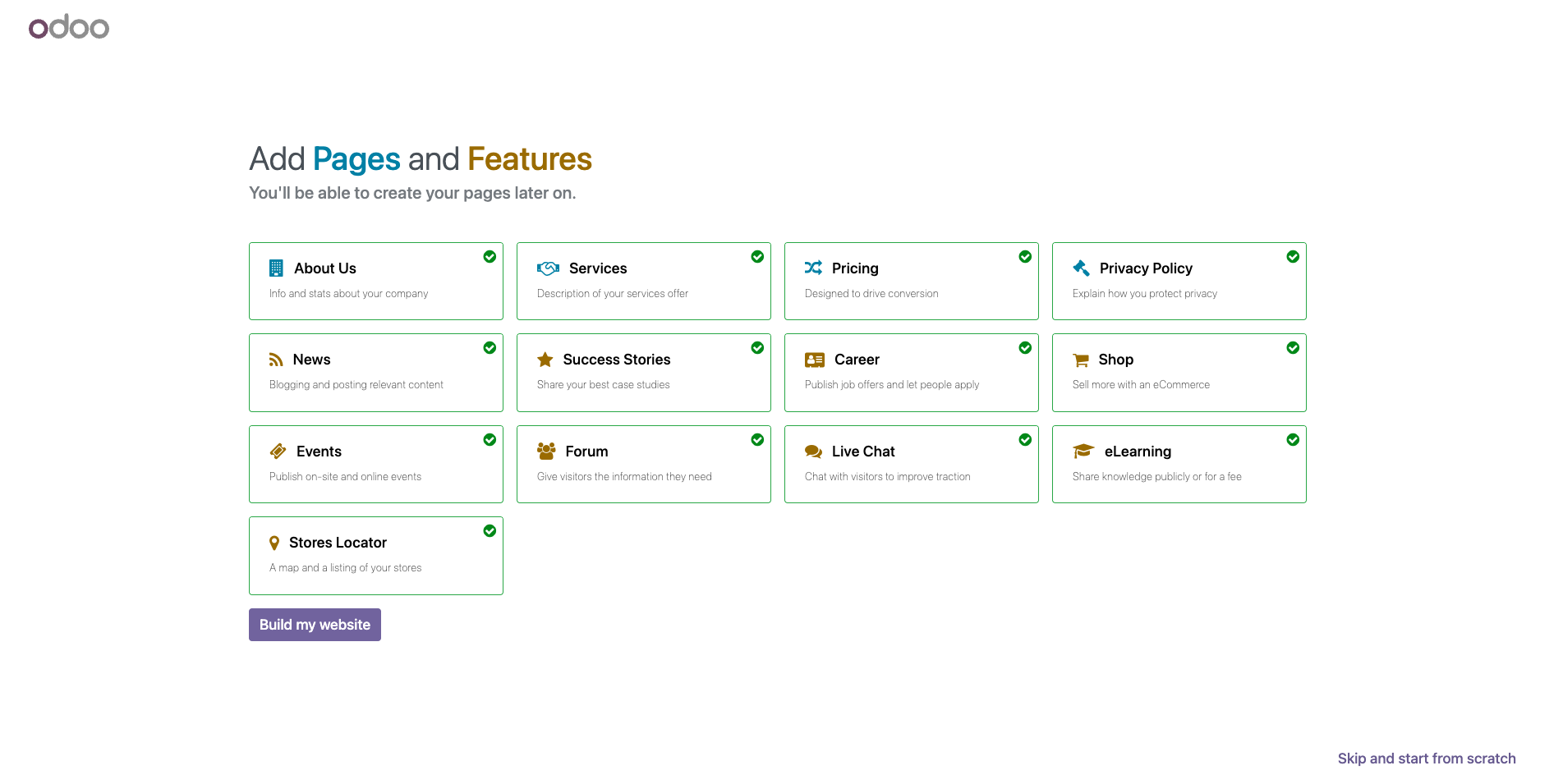
You can easily specify what you want to add to your site.
3. Built-in SEO Tools
No CMS is complete without solid SEO tools. Odoo CMS provides everything you need to optimize your content for search engines: meta tags, descriptions, slugs, and even previews of how your pages will look in search results.
It’s all right there in the editor.
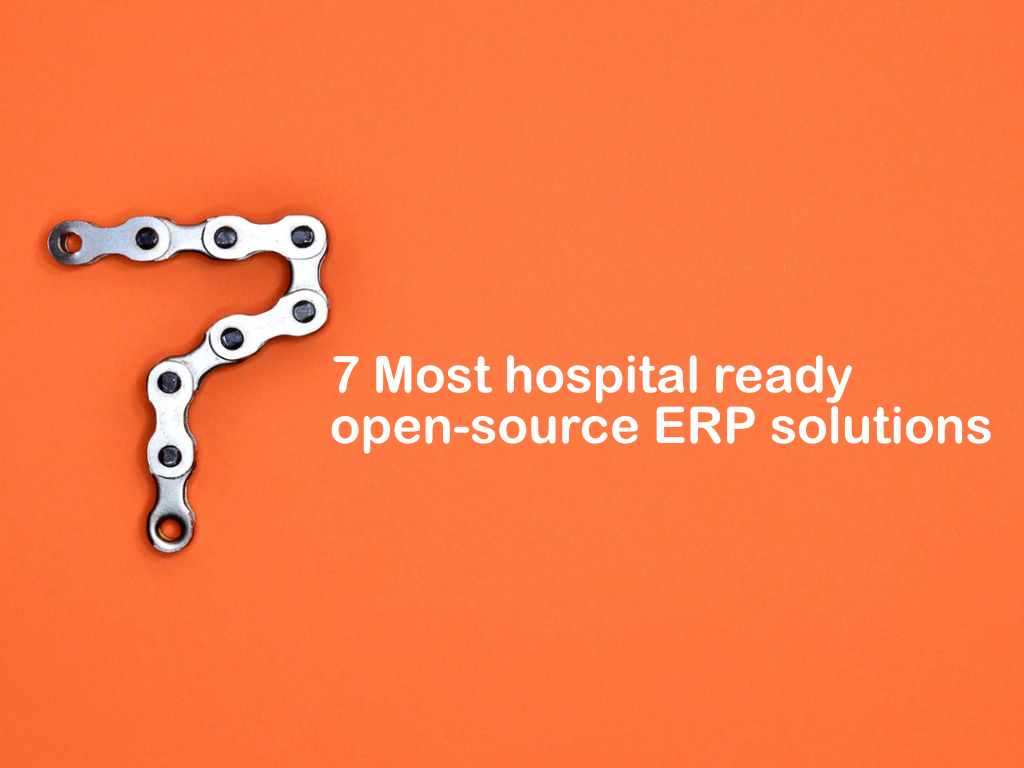
4. Integrated Live Chat Widget
Want to connect with your website visitors in real time? Odoo CMS includes a live chat widget you can embed directly into your site. The best part?
You manage it from within Odoo’s backend, keeping everything centralized and efficient.
This will save you time, effort and money to add your live chat widget, with Odoo, it is free, built-in and one click.

5. Responsive Design Out of the Box
Mobile-first? No problem. Odoo CMS ensures your pages look flawless on desktops, tablets, and smartphones without any extra effort. Responsive design isn’t a feature here — it’s a given.
While, I did not really like the SEO management there, but it does the job.
8. Dozens of Ready-Made Templates
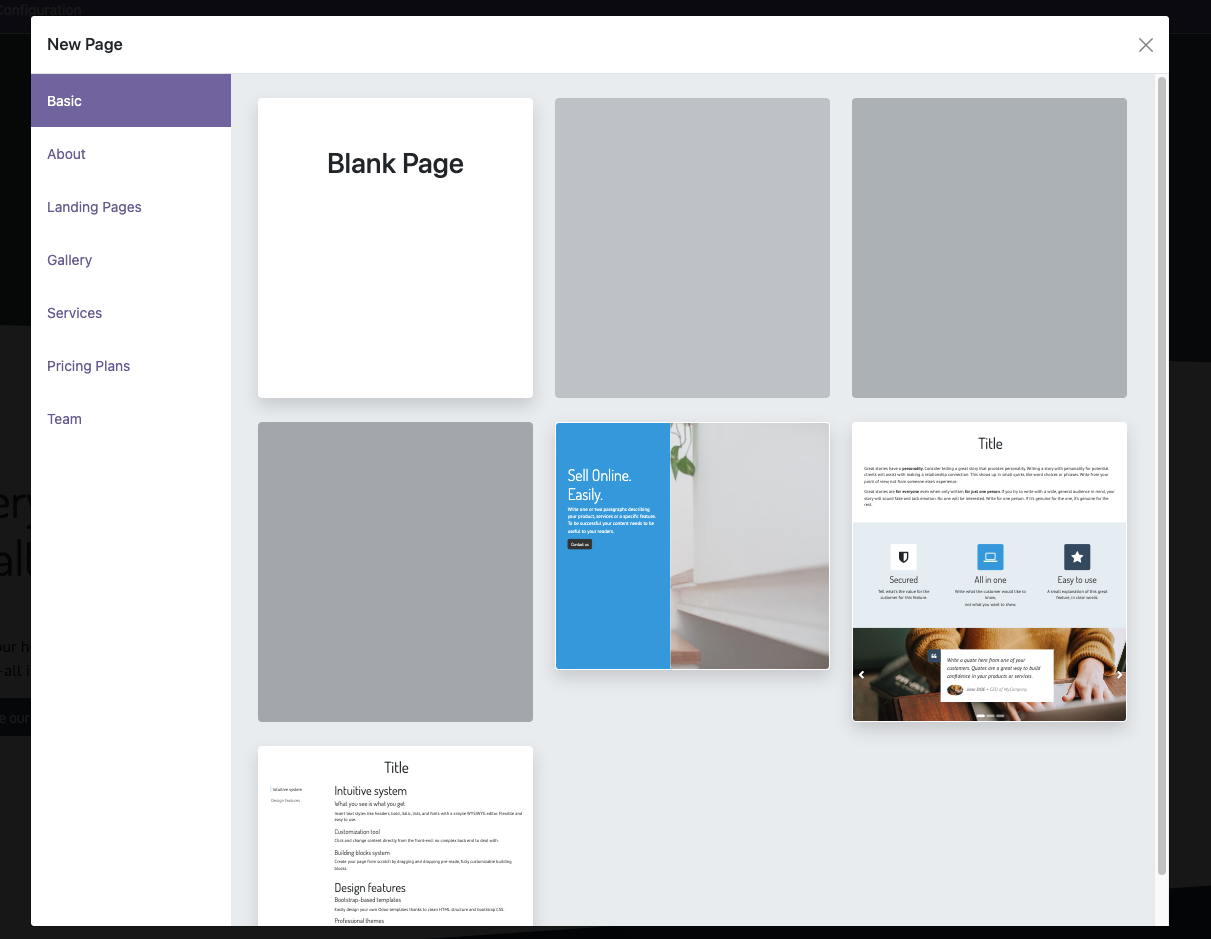
If you’re short on time (or design skills), Odoo CMS offers a library of pre-built templates. Choose one that fits your needs, customize it, and you’re good to go. It’s a time-saver that doesn’t compromise on quality.

What Can Odoo CMS Be Used to Make?
Odoo CMS is versatile and can be used to build a wide range of websites and online platforms. Here are some key use-cases:
- Corporate Websites: Professional, responsive websites for businesses of all sizes.
- E-commerce Stores: Full-featured online shops with payment processing and product management.
- Blogs: Dynamic blogging platforms with categories, tags, and SEO tools.
- Event Management Sites: Pages for listing events, managing registrations, and handling RSVPs.
- Job Portals: Career pages with job listings and application forms.
- Community Forums: Platforms to foster discussions and build online communities.
- Educational Platforms: Sites for hosting courses, learning materials, and online registrations.
- Portfolio Sites: Showcases for freelancers, designers, or agencies to display their work.
- News Portals: Dynamic news sites with easy-to-manage articles and updates.
- Landing Pages: Marketing-focused pages for promotions, campaigns, or product launches.
With its flexibility, ease of use, and integration capabilities, Odoo CMS can cater to a wide range of business needs.

Odoo CMS for E-commerce: A Shopify and WooCommerce Alternative
If you’re looking to build an e-commerce store, Odoo CMS offers a robust alternative to platforms like Shopify and WooCommerce. It provides all the essential features you’d expect from a modern online store:
- Product Catalog Management: Organize products, set categories, and manage inventory with ease.
- Integrated Payment Gateways: Accept payments from various providers, just like Shopify or WooCommerce.
- Customizable Templates: Choose from pre-built templates to create a visually appealing store.
- Shipping and Tax Management: Automate shipping rates and tax calculations for different regions.
- SEO-Friendly: Optimize product pages for search engines to drive organic traffic.
- Responsive Design: Ensure your store looks great on any device.
- Order Tracking and Customer Management: Keep track of orders, manage customers, and provide support.
Odoo CMS seamlessly integrates e-commerce capabilities with other business functions like inventory, sales, and accounting. This makes it an all-in-one solution for businesses looking for a comprehensive platform without needing third-party plugins or services.

Final Thoughts
Odoo’s ERP features may have taken a hit in the customization department (especially in the community edition), but the CMS capabilities more than make up for it. If you need a versatile, user-friendly website builder integrated with your business systems, Odoo CMS is worth a serious look.
Sometimes, the most surprising features come from the least expected places.

